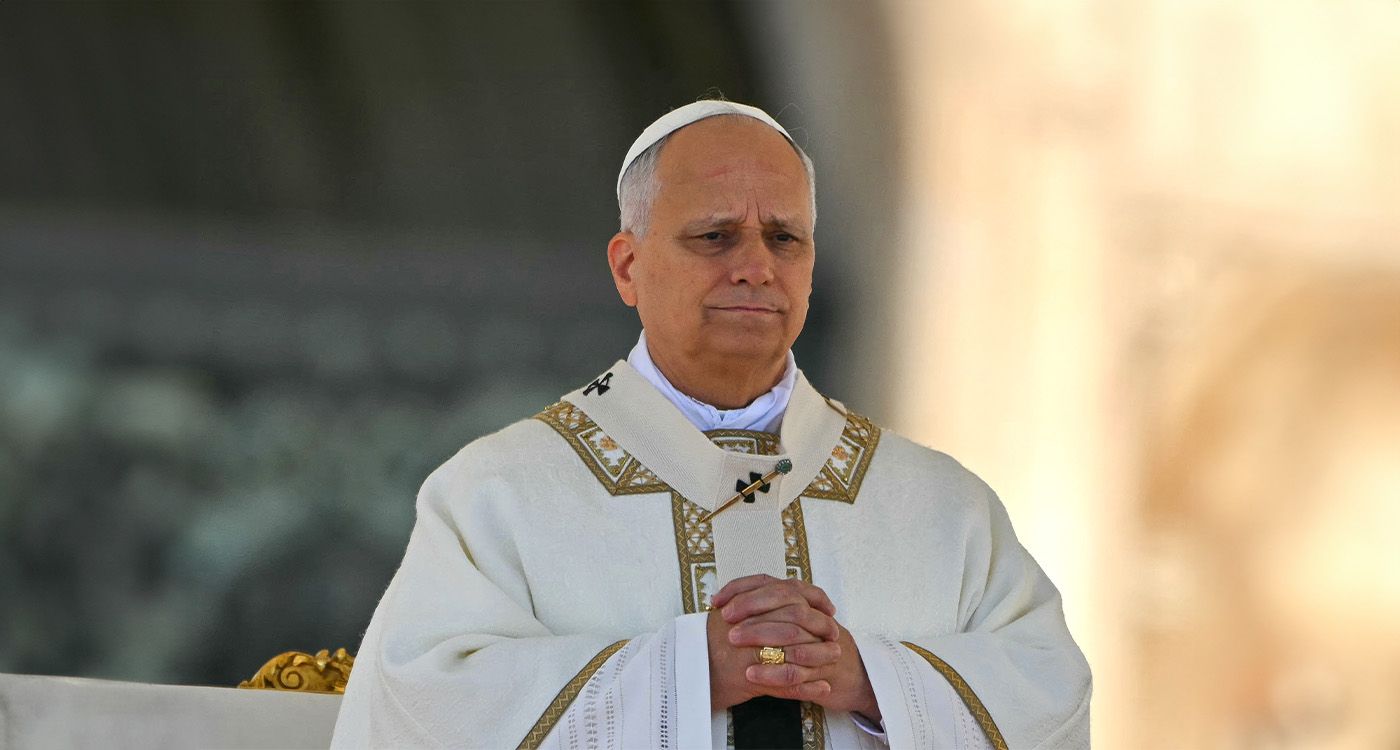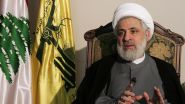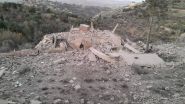
Will Pope Leo XIV advise his flock to merely manage the slow-motion destruction of their community, or to reverse course in an urgent way?
Pope Leo XIV’s expected visit to Lebanon later this month comes at a moment of peril for the country. Lebanon’s most recent war, launched by Hezbollah on October 8, 2023, has barely ended, with Israel threatening to renew the conflict at any moment should Hezbollah not disarm. The Lebanese government has pledged to assert state power and confiscate Hezbollah’s arsenal, but this seems to be more rhetoric than reality. It appears that the war could restart at any time, possibly before, but more likely after, the Pope’s scheduled visit from November 30 to December 2.
An advisor to the Lebanese president told me recently in Rome that while Joseph Aoun spoke frankly to Hezbollah’s top parliamentarian, Mohammad Raad, about the group’s current poor military prospects, the Lebanese government does not want any sort of violent confrontation with Hezbollah. The advisor was dismissive about “hardline” Lebanese in the diaspora who wanted an open confrontation with Hezbollah, saying, “They don’t have to live here; we do.”
Pope Leo’s trip will be the fourth ever papal visit. Previous visits, by three different popes, took place in 1964, 1997 and 2012. Pope Paul VI’s visit in 1964, just for a few hours on his way to India, was the only one before the country’s fifty-year-long—and counting—descent into cycles of open armed conflict which continues, with stops and starts, to this day. In coming to Lebanon, Pope Leo—like his predecessors—wears two hats.
The first is that of a global figure seeking to promote goodwill, peace, understanding and human fraternity among all peoples. One might say that this is the mission of the Head of State of the Vatican City, a tiny but not uninfluential international political institution. The pope’s second hat, highly significant in Lebanese terms, is that of the universal head of the Catholic Church. All of Lebanon’s Catholics—Maronites, Melkites and the others—are part of his flock. The Maronite patriarchal seat at Bkerke is, in a sense, his; he is the spiritual shepherd of the overwhelming majority of Lebanon’s Christians.
Christian Lebanon—the principal part in communion with Rome, as well as the part that is not—is slowly dying. It is not dying like Christian communities in the West, with their empty churches, loss of faith and lack of vocations. Rates of weekly Mass attendance in Lebanon are very high; religious faith still exists and indeed flourishes. Christian Lebanon—and, to a greater extent, all of Lebanon’s communities, Muslim or Christian—is dying because of poor—disastrous, actually—governance, which drives its citizens to seek a more dignified and fruitful life elsewhere.
According to an Arab Barometer survey in September 2024, 38% of Lebanese are considering emigrating from their country. Among 18-29-year-olds, the percentage wanting to leave is higher, at 58%, most citing economic reasons. Recently, US President Donald Trump's point person for Lebanon, Tom Barrack, bluntly described the country as a failed state. Those Lebanese surveyed by the Arab Barometer highlighted the economic situation, corruption, inflation, poverty and low wages as key concerns.
Pope Leo will come and say all the diplomatic niceties that foreign heads of state can and should do when visiting Beirut. He may speak of the promise and message of Lebanon—echoing Pope John Paul II during his 1997 visit—including its pluralism, rich history and culture. All well and good. But what is to be the message of Leo the Shepherd to his Lebanese flock? There will obviously be a spiritual dimension. This was a major part of the document—the Apostolic Exhortation Ecclesia in Medio Oriente—that emerged from Pope Benedict XVI’s visit in 2012. Benedict warned that “a Middle East without Christians, or with only a few Christians, would no longer be the Middle East, since Christians, together with other believers, are part of the distinctive identity of the region.”
Pope Leo comes as a peacemaker, as proclaimed by the official logo for the papal visit, but what kind of peace is currently on offer for the Lebanese? “Peace” is not—and cannot be—a slow, steady decline under the thumb of a militia veto. That is slow strangulation, not peace. Yet this, incredibly, still seems the most likely scenario. The positive neutrality that the Maronite Patriarch has called for cannot abide in a Lebanon preparing for war at any moment based on calculations made in Dahiye or Tehran.
Barrack’s recent blunt comments were, without a doubt, extremely unpleasant for many Lebanese to hear. Pope Leo will be far more diplomatic and kind—a true shepherd—but his interlocutors, especially the Christians ostensibly loyal to him, need to hear some tough love. Should the Pope advise his flock to merely manage the slow-motion destruction of their community or to be more radical for peace and reverse course in a tangible and urgent way? No pope in our modern world will call for war or violent confrontation, but a pope who can see the signs will say that Lebanon cannot just continue as it has for so many years. If not now, when will things change? When will the political environment be better? After the next war, or the one after that? Does the Lebanese government and its non-Hezbollah leadership have any agency?
The hope is that Pope Leo will reinforce, in his unique way, what others have said: that Lebanon cannot just continue as it has, that decline is a choice, and that Lebanese—even the government—must exert political will in order to change. If Pope Leo is listened to, it would be a miracle, but he will also be the first of four popes visiting Lebanon to visit Saint Charbel’s shrine at Annaya, where the faithful come for miracles.




Comments